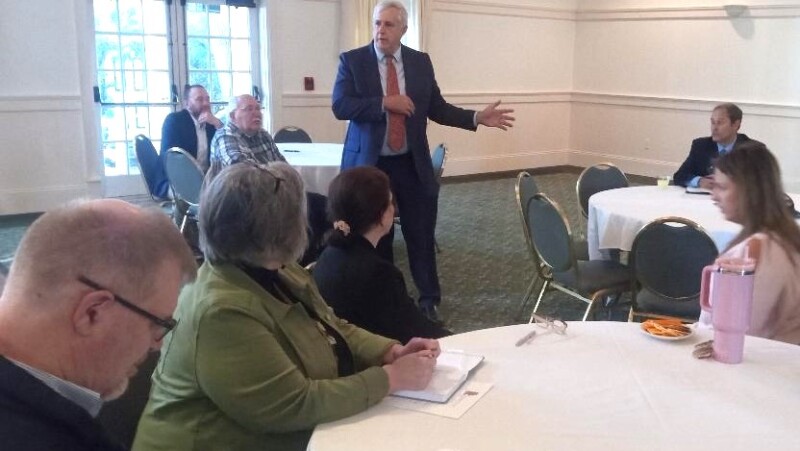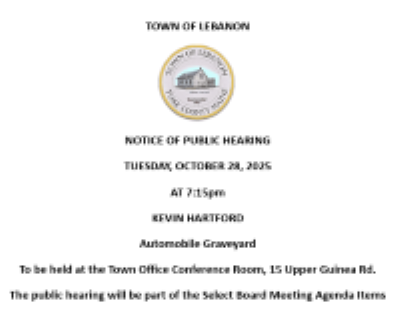
ROCHESTER - Granite Staters for years have heard about the plight of folks in rural parts of the state who are forced to make long trips to get to a full service grocery store that has fresh fruits, vegetables and meats.
They're call food deserts.
On Wednesday at the Governors Inn two member of the governor's Executive Council showed up at a round-table event to discuss what amounts to "health deserts," areas of the state where residents face challenges to get access to care they desperately need.
District 1 Executive Councilor Joe Kenney, who represents Greater Rochester, said "once you get north of Rochester to small towns like Milton and Middletown, health care gets more difficult."
He added that transportation is key to improving the rural health effort.
The federal health care initiative is part of the One Big Beautiful Bill that was recently passed by Republicans and could fund up to $50 billion to the state of New Hampshire over a five-year time frame if applications for aid are approved.
The roundtable was attended by about 30 who represented government health organizations, nonprofits like Hope on Haven Hill and COAST bus land other health providers.
District 4 Executive Councilor John Stephen, who
represents the Greater Manchester area and is a former New Hampshire Health & Human Services Commissioner, called this a "huge opportunity" for the state.
"We want to find out what the community needs," he told the crowd.
Stephen noted that the bill isn't about building hospitals or raising salaries, but said to meet the criteria of the application it must be "transformative."
He stressed he wanted this to be community based and not state based, which creates red tape and more bureaucracy.
Much of the conversation focused on ensuring that the bill should support our next generation of health care workers.
Others said it is important to bring into the loop health care providers who currently don't get reimbursed by health insurance.
A renewed emphasis on dental health was also suggested.
Mark Bonica, chairman of UNH's Health Management and Policy Board, said he wanted to work with the state's community college system to outreach on these very important issues.
New Hampshire stakeholders must have their plans to secure the federal funding in by Dec. 31.












